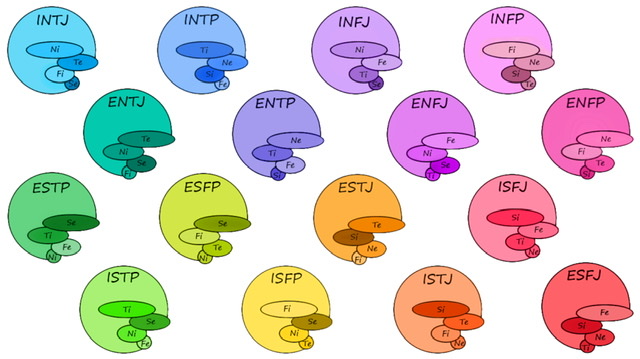What’s the difference between T and F?
They are, it is said, judging functions. We use those to judge something as either good or bad. I have no idea what that “something” can and cannot be but the general idea is clear.
Suppose there’s a painting in front of you that you can judge as either good (= beautiful) or bad (= ugly.)
Which one of the two judgment functions can we use? Can we use any? This isn’t quite clear. But I am inclined to believe that we can use any one we want.
How would someone using a feeling function judge the painting? They would judge it based on how they feel, correct? If looking at the picture made them feel good, they would judge it as beautiful; if it made them feel bad, they would judge it as ugly.
So far, so good. But how does that differ from using a thinking function? I am told the difference is that people who use T judge things by following step-by-step instructions on how to calculate the value of any given painting.
That too makes sense. However, that leads me to a conclusion that the main difference between T and F is that T is a self-aware judgment whereas F is a judgment that is not self-aware. That sort of difference is pretty superficial, isn’t it? It means that T is an F that is self-aware to certain degree.
Isn’t that the main difference between T and F? Can someone argue otherwise?
How about the following: you use your feelings to judge the painting and then use introspection to become aware of the mechanism that you used to judge it. Would MBTI designers, MBTI practitioners and Jung himself (as well as the guy who came up with dual-process theory, I mean William James) see that sort of process as an instance of T? Hardly so, I would say. But that would be mostly because the process of judgment and the process of introspection are strictly separated: one judges, and then, once the entire process of judgment is finished, one introspects. But what if, instead of keeping the two processes separated, one executed them simultaneously? What if introspection occurred as we judged? I am pretty sure they would consider such a process an instance of T. If that’s the case, that would mean that T is merely a simultaneous combination of F and introspection.
Feeling, in this sense, is merely what I referred to as a higher level of extraverted thinking in one of my previous posts.
But for one reason or another, F is also associated with things such as empathy. It is said that feelers are better at understanding other people’s needs (if their feeling is extraverted) or their own needs (if their feeling is introverted.) But how does this follow from the above?
I can understand the idea of certain people being better at understanding certain portions of the universe (e.g. people) than others (e.g. machines) but what does that have to do with the above definition of F?
Perhaps the clue lies in what appears to be a potential fact that introspection is of greater importance when dealing with machines than when dealing with people?
